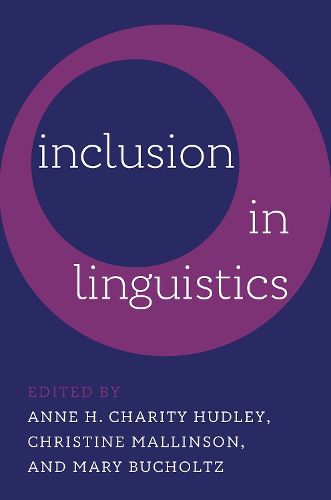Readings Newsletter
Become a Readings Member to make your shopping experience even easier.
Sign in or sign up for free!
You’re not far away from qualifying for FREE standard shipping within Australia
You’ve qualified for FREE standard shipping within Australia
The cart is loading…






This is an open access title available under the terms of a CC BY-NC-ND 4.0 International license. It is free to read at Oxford Academic and offered as a free PDF download from OUP and selected open access locations. Inclusion in Linguistics, the companion volume to Decolonizing Linguistics, aims to reinvent linguistics as a space of belonging across race, gender, class, disability, geographic region, and more. Taken together, the two volumes are the first comprehensive, action-oriented, book-length discussions of how to advance social justice in all aspects of the discipline. The volume's introduction theorizes inclusion as fundamental to social justice and describes the extensive dialogic and collaborative process through which the volume was developed. Contributors discuss intersectional forms of exclusion in linguistics: researchers' anti-autistic ableism; the exclusion of Deaf Global South researchers of color; the marginalization of Filipino American students and scholars; disciplinary transphobia; and the need for a
$9.00 standard shipping within Australia
FREE standard shipping within Australia for orders over $100.00
Express & International shipping calculated at checkout
This is an open access title available under the terms of a CC BY-NC-ND 4.0 International license. It is free to read at Oxford Academic and offered as a free PDF download from OUP and selected open access locations. Inclusion in Linguistics, the companion volume to Decolonizing Linguistics, aims to reinvent linguistics as a space of belonging across race, gender, class, disability, geographic region, and more. Taken together, the two volumes are the first comprehensive, action-oriented, book-length discussions of how to advance social justice in all aspects of the discipline. The volume's introduction theorizes inclusion as fundamental to social justice and describes the extensive dialogic and collaborative process through which the volume was developed. Contributors discuss intersectional forms of exclusion in linguistics: researchers' anti-autistic ableism; the exclusion of Deaf Global South researchers of color; the marginalization of Filipino American students and scholars; disciplinary transphobia; and the need for a